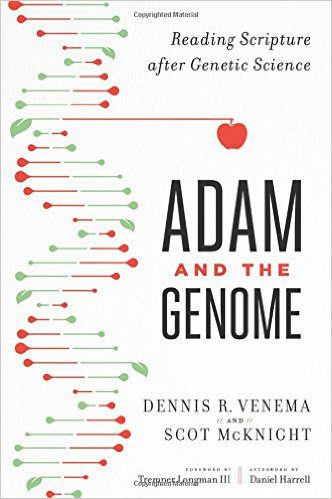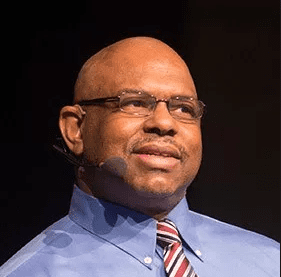 Good read of the week, by Tim Carman, with HT: LNMM:
Good read of the week, by Tim Carman, with HT: LNMM:
In the military-style hierarchy of U.S. restaurant kitchens, a dishwasher ranks near the bottom, even if chefs, given half a chance, will loudly sing a good pot-scrubber’s praises. (These hard-working men and women, often immigrants, would probably prefer a living wage over songs of praise, but that’s another story.)
But over in Copenhagen, Rene Redzepi, the chef and co-owner of Noma, did something extraordinary last week for the restaurant’s longtime dishwasher: He made Ali Sonko a partner in the Danish gastronomic temple that regularly ranks among the world’s best.
Sonko, a native of Gambia, was one of three new partners named during a party on Noma’s last day at its waterfront space in the Christianshavn neighborhood. Noma is expected to relocate in December to its new urban farm near Christiania, Copenhagen’s famous “free town” known for its boho lifestyle and ample drugs.
When Redzepi made the announcement to an assembled crowd of 250 staffers and friends of the house, he “never expected it to be the big story that it’s become,” the chef says from Tulum, Mexico, where Noma will operate an open-air popup in the jungle, starting in April. Since the announcement, Sonko has been interviewed on just about every TV channel in Denmark, Redzepi says.
Thanks again to Kris for finding so many of these links.
Fun to get emails from high school friends of my son who are reading Adam and the Genome.
We are very proud at Northern of our history with women students and ordination of women so we at Northern are glad to hear of what his going on here: Marianne Meye Thompson and Joel Green have an interview-like post on women in ministry and Fuller Seminary. Here’s the opener:
MMT: The words that come immediately to mind are partnership, mutuality, interdependence, and the like. Fuller’s statement of purpose describes the seminary as “dedicated to the equipping of men and women for the manifold ministries of Christ and his church.” We construe “ministries” to encompass all that our three schools—Theology, Psychology, and Intercultural Studies—equip our students to do: teach, pastor, counsel, write, lead worship, engage in artistic endeavors, and many other vocations, too. We believe that the ministries of Christ happen inside and outside the walls of the church—in banks and schools and theaters and hospitals as well as in congregations. And we believe that men and women are equally called to and gifted for all these ministries: gender is no barrier when the Lord calls and equips someone for service, whatever it might be.
We also believe that “men and women” are called to minister and serve together; that men and women together constitute the body of Christ and are called to serve as its leaders and servants. In other words, we want to emphasize the mutuality that men and women share in carrying out the “manifold ministries of Christ and his church.” We don’t want to replace men with women. We don’t think male and female should be done away with, or that men and women are simply interchangeable in God’s creation. So we believe, for example, that marriage is between a man and a woman.
We acknowledge and celebrate the differences that may arise from our varied experiences in the world as men and women, believing that our mutual service enriches the body of Christ. Perhaps our commitment to mutuality can be summarized in the words of Paul: “in the Lord woman is not independent of man, nor man of woman” (1 Cor 11:11). If others emphasize hierarchy and distinctions in gender roles, we emphasize the ways in which men and women are “joint heirs” of the grace and the call of God.
JBG: I think of Fuller not only as the world’s preeminent evangelical seminary, but as a seminary that insists that the evangel, the gospel, embraces women and men as full partners in the good news of Jesus Christ and as equal recipients of God’s grace for salvation, ministry, and mission.
This means for us that the gospel is realized among God’s people such that we might take for granted that (of course!) both women and men have received gifts and graces for all sorts of ministries, for all kinds of ministry positions, for the full range of ministry roles in the church and world.
Together, women and men reflect God’s image. Together, women and men are clothed in Christ at baptism. And God gives both women and men as prophets and evangelists and teachers and pastors to equip God’s people for ministry.
Teaching at Fuller Seminary means that I needn’t regard these as contested claims, but can simply affirm them as central to the good news of Jesus Christ.
Speaking of which, our diocese — C4SO with Todd Hunter — has a good story to tell:
When two dioceses join hands, a husband-wife team finds a parish to pastor.
Last year, The Rev. Kevin and the Rev. Karen Miller of the Diocese of the Upper Midwest felt God calling them to preach and pastor as a husband-wife team. But there were no churches in their diocese with a position available. So they continued to attend Church of the Resurrection in Wheaton, Illinois, and pursue other employment.
Around the same time, their longtime friends the Rev. Bill and Linda Richardson of the Diocese of Churches for the Sake of Others were preparing to retire from nearby Church of the Savior. They had quietly been thinking of replacements, but didn’t consider the Millers as they belonged to a different diocese. Moreover, Church of the Savior is only 10 minutes from Church of the Resurrection.
The ships nearly passed in the night, but the Millers’ rector and bishop, the Rt. Rev. Stewart Ruch, called a few of his fellow bishops, including Bishop Todd Hunter, to ask if their dioceses had any churches in search of a rector couple.
Bishop Hunter quickly thought of Church of the Savior. He asked the Millers, whom he had known for years, if they would be interested in candidating for the position. When the Millers asked Bishop Ruch about the possibility, he replied, “I’m supportive. We’re going to bless you if you go, and if people decide to go with you to Savior, we’ll bless them too.”
Bishop Hunter was thrilled at the resulting kingdom collaboration.
“Bill and Linda created a unique and beautiful community of faith at Church of the Savior,” he says. “Kevin and Karen have the vision and leadership to move the church forward. This transition allows The Diocese of Churches for the Sake of Others and the Diocese of the Upper Midwest to partner in a way that we all hope makes future collaboration possible.”
After a national search by Savior’s vestry and discernment team, led by Alexis Olsen and Steve Mead, the church chose to hire the Millers. The couple started in January as Rector and Associate Pastor for a congregation they describe as “gentle and loving.” The transition was a peaceful one, as the Millers were able to spend several months attending Church of the Savior, assisting the Richardsons in leading worship, and getting to know the parishioners before they officially started on January 1.
Quite the piece on Margaret Mead by Elesha Coffman:
“These pro-lifers are headed to the Women’s March on Washington,” the Atlantic announced. “Is there a place at the Women’s March for women who are politically opposed to abortion?” the Washington Post inquired. “Can you be a ‘pro-life feminist’?” asked Vox. “I’m a pro-life Christian who proudly attended the women’s march,” one woman told Self. “Feminism’s big tent isn’t big enough for the anti-abortion movement,” countered a writer for Religion Dispatches.
Margaret Mead, the subject of my next book project, was a Christian, pro-life, and a feminist, but she is typically remembered as none of these things. Both the way she combined these identities and the reasons she gets no credit for the combination speak to our historical moment. Not only is it possible to be a pro-life feminist, she would argue, but it is unchristian—and frankly irresponsible—to be anything else.
Mead’s Christian bona fides were clear. Although her parents were atheists, they allowed young Margaret to explore religion for herself, and at age 11 she chose to join the Episcopal Church. “I enjoyed prayer,” she wrote in her autobiography, Blackberry Winter. “I enjoyed church. I worried over the small size of our congregation.” She remained committed to the church throughout her life. Her first husband was a minister. She taught Sunday school. She served on church-related committees from at least 1927, when she participated in the Women’s Committee on Race Relations (affiliated with the Federal Council of Churches), to the 1970s, when she worked on revisions to the Book of Common Prayer. Following her death in 1978, the House of Bishops approved a Resolution of Thanksgiving for her life and work, noting “her thoughtful service to the Episcopal Church” and “the model of obedience to the will of God as she perceived it and which her life represented.”
[HT: JS]
Surprise surprise: Rick Maese:
The senator leaned in closer, sharing a sheet of paper with the oversized extern seated next to him. Listed was the day’s schedule, groups coming through the office, committee hearings on tap and policy matters that needed to be explored.
“The ones that are highlighted in blue are ones where I’ll be making the full meeting,” Sen. Cory Gardner, R-Colo., explained. Will Pericak, an offensive lineman for the Seattle Seahawks, nodded. At 300 pounds, Pericak is the biggest person working in Gardner’s office.
Outside the office, official Washington, D.C., was consumed Thursday morning with reports that the attorney general might have met with a Russian ambassador. For at least a moment, though, Gardner’s office was much more focused on the staid details of the day.
“If you follow all the media, you’d think they’re throwing grenades and launching rocks from windows out here,” Pericak said. “Like, everybody’s at each other’s throats. But really, there’s nice people who are working their tails off to make things better.”
Pericak, 27, is one of three NFL players who have been working on Capitol Hill as part of a crash-course three-week externship program run by the NFL Players Association. The union encourages players to spend part of their offseason exploring other career fields, and last month, 41 NFL players were planted with 15 different organizations. While Pericak, Titans‘ lineman Karim Barton and Dion Bailey, a free agent defensive back, are working with elected members of Congress, others are assigned to businesses such as Marriott, Under Armour and Comcast SportsNet.
The trio of football players on the Hill arrived at a particularly unique time in Washington: shortly after President Donald Trump‘s inauguration, as the Senate held confirmation hearings for appointees and the House opened a new session. There’s turnover and change every two years, but the frenetic pace and the political bombast and drama has been turned up several notches.
Bibliotherapy by Ceridwen Dovey:
I worked my way through the books on the list over the next couple of years, at my own pace—interspersed with my own “discoveries”—and while I am fortunate enough to have my ability to withstand terrible grief untested, thus far, some of the insights I gleaned from these books helped me through something entirely different, when, over several months, I endured acute physical pain. The insights themselves are still nebulous, as learning gained through reading fiction often is—but therein lies its power. In a secular age, I suspect that reading fiction is one of the few remaining paths to transcendence, that elusive state in which the distance between the self and the universe shrinks. Reading fiction makes me lose all sense of self, but at the same time makes me feel most uniquely myself. As Woolf, the most fervent of readers, wrote, a book “splits us into two parts as we read,” for “the state of reading consists in the complete elimination of the ego,” while promising “perpetual union” with another mind.
Bibliotherapy is a very broad term for the ancient practice of encouraging reading for therapeutic effect. The first use of the term is usually dated to a jaunty 1916 article in The Atlantic Monthly, “A Literary Clinic.” In it, the author describes stumbling upon a “bibliopathic institute” run by an acquaintance, Bagster, in the basement of his church, from where he dispenses reading recommendations with healing value. “Bibliotherapy is…a new science,” Bagster explains. “A book may be a stimulant or a sedative or an irritant or a soporific. The point is that it must do something to you, and you ought to know what it is. A book may be of the nature of a soothing syrup or it may be of the nature of a mustard plaster.” To a middle-aged client with “opinions partially ossified,” Bagster gives the following prescription: “You must read more novels. Not pleasant stories that make you forget yourself. They must be searching, drastic, stinging, relentless novels.” (George Bernard Shaw is at the top of the list.) Bagster is finally called away to deal with a patient who has “taken an overdose of war literature,” leaving the author to think about the books that “put new life into us and then set the life pulse strong but slow.”
Today, bibliotherapy takes many different forms, from literature courses run for prison inmates to reading circles for elderly people suffering from dementia. Sometimes it can simply mean one-on-one or group sessions for “lapsed” readers who want to find their way back to an enjoyment of books. Berthoud and her longtime friend and fellow bibliotherapist Susan Elderkin mostly practice “affective” bibliotherapy, advocating the restorative power of reading fiction. The two met at Cambridge University as undergraduates, more than twenty years ago, and bonded immediately over the shared contents of their bookshelves, in particular Italo Calvino’s novel “If on a Winter’s Night a Traveller,” which is itself about the nature of reading. As their friendship developed, they began prescribing novels to cure each other’s ailments, such as a broken heart or career uncertainty. “When Suse was having a crisis about her profession—she wanted to be a writer, but was wondering if she could cope with the inevitable rejection—I gave her Don Marquis’s ‘Archy and Mehitabel’ poems,” Berthoud told me. “If Archy the cockroach could be so dedicated to his art as to jump on the typewriter keys in order to write his free-verse poems every night in the New York offices of the Evening Sun, then surely she should be prepared to suffer for her art, too.” Years later, Elderkin gave Berthoud,who wanted to figure out how to balance being a painter and a mother, Patrick Gale’s novel “Notes from an Exhibition,” about a successful but troubled female artist.
My friend Ted Gossard offers us all a good reminder:
February in the United States and Canada is designated Black History Month (October in the United Kingdom). It is important to remember the history of African-Americans, whose recent ancestors were stolen, enslaved, and all too often killed. It is a great error to see this as being “politically correct.” We need to recognize the achievements of those in our family who are African in their origin, as well as the difficulties and evils they encountered, more or less front and center at one time, but now often much more hidden, yet just as real. An example of what is especially a hidden, subtle form of racism is the part of the story in the film Hidden Figures, which wasn’t told.
At the heart of the outcome of the gospel is the destruction of all divisions within humanity, while celebrating the differences through God’s creation (see the book of Revelation, in which every tribe and nation in all their diversity worship God together). The fact that the church seems to make either little or nothing of this at all seems to me to be a grave mistake which needs prayer and correction. The good news of God in Jesus and through his death means a completely open access to God, and also to each other in the sense of living out our oneness as one family in him. There is only one human race, and the difference in ethnicities among us enhance humanity. We need each other, every part of the whole of the one family of humanity.
Now golf rules, and a commentary by Kermit:
The USGA and the R&A announced today that there will be a wholesale change in the Rules of Golf to be implemented at the beginning of 2019. They say there has been no such change of this magnitude for over thirty years. Suggestions will be received until the end of August this year. Then officials will take time in crafting the new rules. Their three main objectives will be to reduce the number of rules, simplify them so that they will be more understandable, and speed up play.
The United States Golf Association and the Royal and Ancient Golf Club are the only two rules-governing bodies in golf world. They have been working in tandem together on the Rules of Golf for about half a century. Before that, it wasn’t so. Now, they have proposed some important new rules changes which are not yet permanent. There are presently 34 rules in the rulebook, and they intend to reduce them to 24. Some of the more prominent changes will include the following, with my comments appended…
In the locker room at my swimming pool when I was a kid: “Don’t pee in our pool and we won’t swim in your toilet.” Here’s why.
 By Kelly Ladd Bishop, from Arise
By Kelly Ladd Bishop, from Arise













